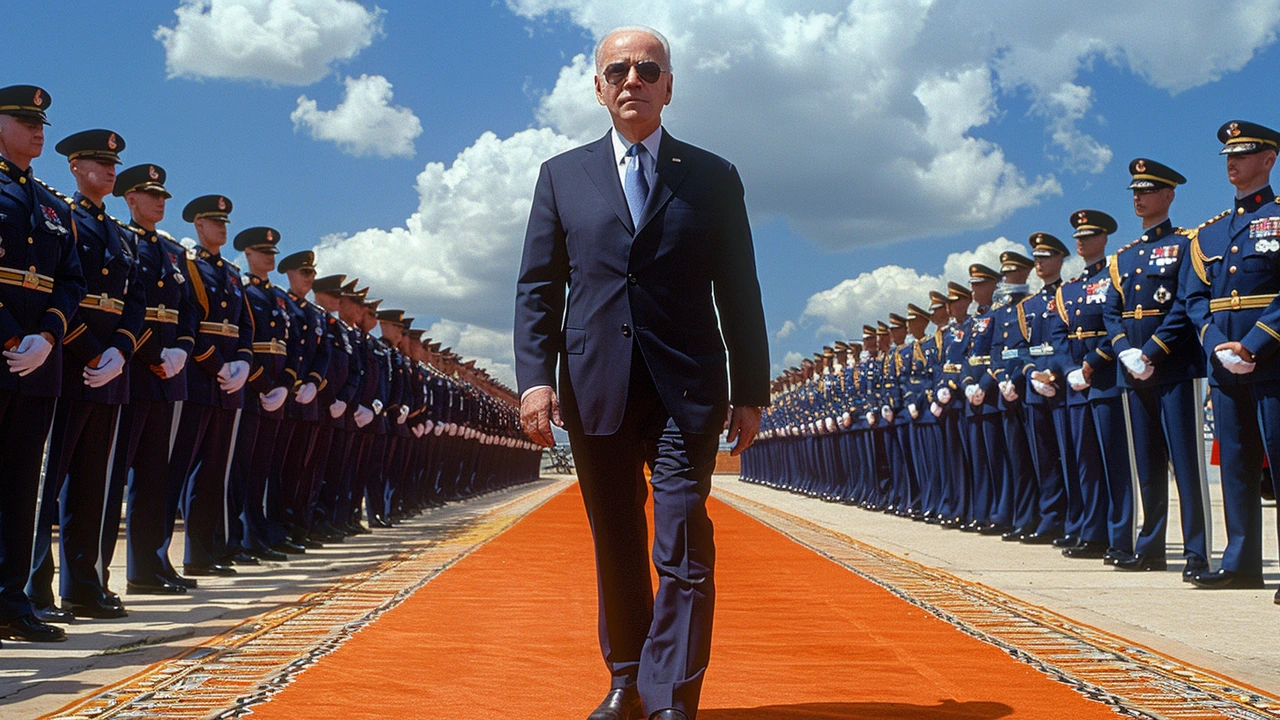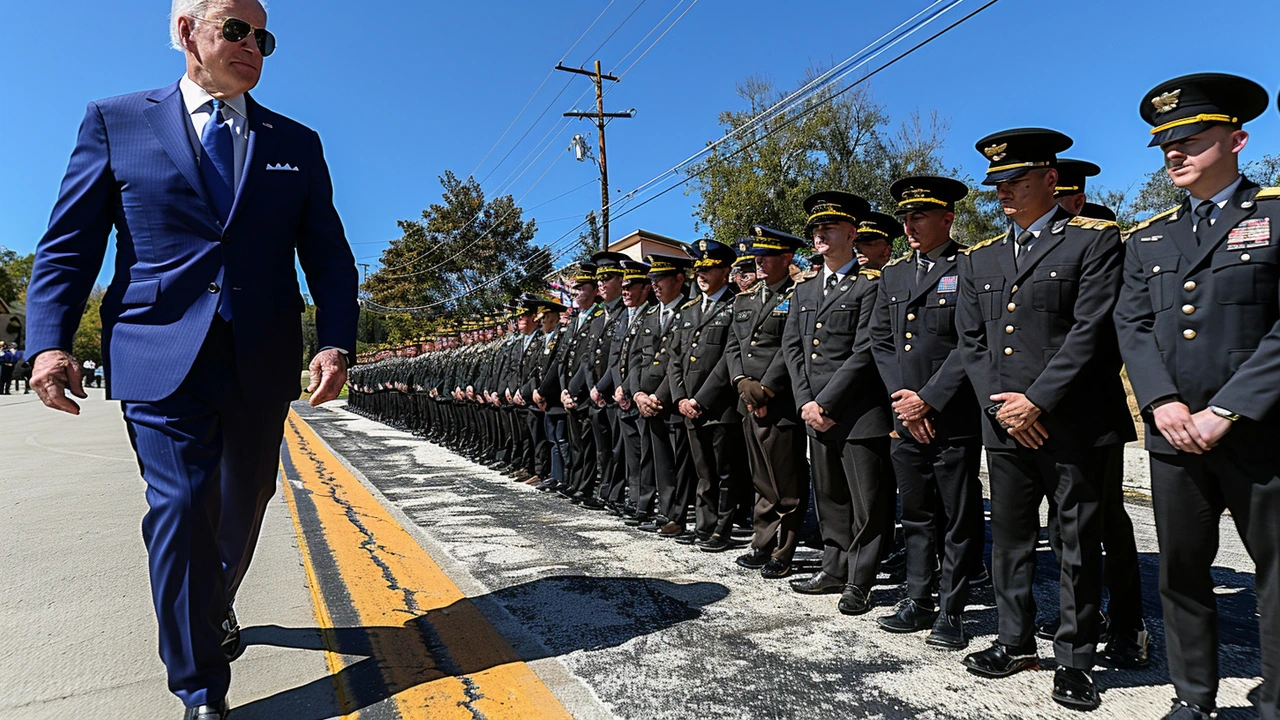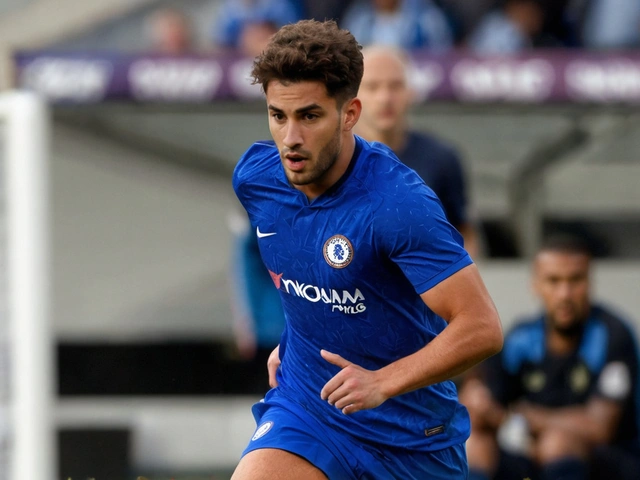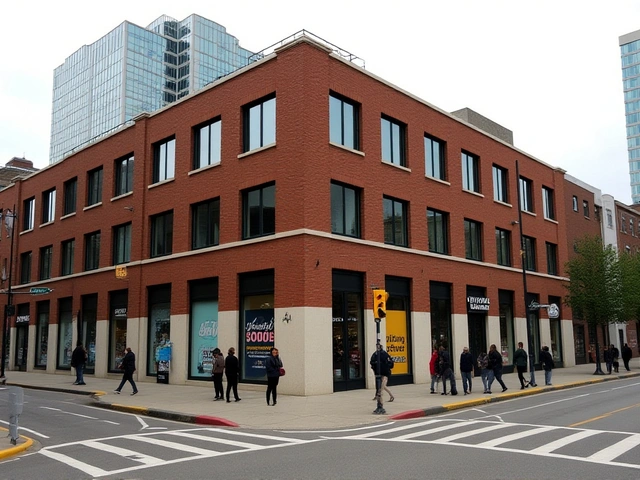President Biden's Visit to France for D-Day Commemoration
President Joe Biden has undertaken a significant visit to France to honor the 80th anniversary of D-Day, a key moment in World War II that underscored the strength and unity of the Allied forces. This visit is not just a nod to the past but also a conscious effort to draw parallels with current global politics and his administration’s stance on democracy, unity, and international cooperation.
The Arrival in France
Landing at Orly Airport, President Biden was warmly welcomed by French Prime Minister Gabriel Attal, marking the start of a series of poignant events and meetings. The agenda for Biden’s visit is packed with activities designed to commemorate the historic event, underlining the sacrifices made by the Allied forces and the enduring importance of these alliances.
One of the highlights of Biden’s visit will be his speech on Friday, where he is expected to address the themes of democracy and freedom. The speech is anticipated to resonate strongly with historical references and contemporary political dynamics as Biden emphasizes the importance of rebuilding alliances and restoring America’s role as a global leader. This is a stark contrast to former President Donald Trump’s 'America First' policy, aimed at prioritizing national interests over global cooperation.
D-Day Commemoration Ceremony
The D-Day anniversary events will see Biden joining over two dozen world leaders and veterans in Normandy, paying tribute to the troops from the United States, Canada, and Britain who turned the tides of World War II on June 6, 1944. These ceremonies are deeply symbolic, serving as a reminder of the collaborative efforts that defeated tyranny and set the stage for modern global diplomacy.
Biden’s presence at these events is a strong testament to his dedication to maintaining and strengthening international alliances. His administration has repeatedly emphasized the importance of NATO and other international partnerships, positioning the United States once again as a pivotal player on the world stage.
Symbolic Engagements
In addition to the D-Day ceremonies, President Biden’s itinerary includes a crucial meeting with French President Emmanuel Macron. This meeting marks Biden’s first state visit to France as the U.S. president and is expected to address a range of topics, from bilateral relations to broader global issues. The relationship between Biden and Macron has been largely positive, underscored by mutual respect and shared values around democracy and multilateralism.
Another noteworthy event on Biden’s schedule is the laying of a wreath at the Aisne-Marne American Cemetery, a significant gesture that highlights the sacrifices of American troops and the enduring bond between the two nations. The cemetery is the final resting place for many U.S. service members who gave their lives in World War I, symbolizing a long history of Franco-American solidarity.
Comparisons with Trump's Visits
Biden’s visit inevitably draws comparisons to former President Trump’s controversial trips to France. Trump’s tenure was marked by a series of decisions that strained international relationships, including his choice to skip a visit to a key American cemetery during a previous trip to France, citing bad weather. This decision was met with widespread criticism and was seen as a disregard for the shared sacrifices of the Allies.
By contrast, Biden’s approach is steeped in respect and historical awareness. His commitment to participating in these solemn ceremonies and engaging with international leaders underscores a clear shift in U.S. foreign policy. Biden aims to project an image of a harmonious and cooperative United States, ready to lead and support global democracy.
Context of the European Parliament Elections
The timing of Biden’s visit is also significant in the context of the ongoing European Parliament elections. European citizens are currently voting on representatives who will shape the future of the EU, and Biden’s message of unity and collaboration resonates strongly at this juncture. His visit is an opportunity to reinforce the importance of democratic values and the role of strong international alliances in facing global challenges.
Biden’s interactions with European leaders during this period are likely to influence perceptions of the United States’ commitment to democracy and multilateralism. By emphasizing cooperation and shared values, Biden is positioning his administration as a reliable partner in global affairs, in stark contrast to the isolationist tendencies that characterized Trump’s 'America First' rhetoric.

Implications for U.S. Foreign Policy
Biden’s trip to France for the D-Day anniversary reflects broader themes in his foreign policy approach. His administration has placed a high priority on re-engaging with allies and reinvigorating alliances that were perceived to be weakened during the previous administration. This visit serves as a symbolic gesture that reinforces the message of unity and collaboration that Biden has championed since taking office.
Furthermore, Biden’s remarks and actions during this visit are likely to have a lasting impact on his administration’s relationship with European allies. By honoring the shared history and sacrifices of the Allied forces, Biden is reminding the world of the importance of standing together in the face of challenges, both historical and contemporary.
The emphasis on democracy and freedom in Biden’s speech will also resonate with global audiences, reinforcing the values that underpin international cooperation and collective security. In a time when democratic norms are being tested around the world, Biden’s presence at the D-Day anniversary is a powerful reminder of the enduring importance of these principles.
Reactions from European Leaders
European leaders are expected to respond positively to Biden’s visit, viewing it as a reaffirmation of the United States’ commitment to international partnerships. The symbolism of the D-Day anniversary, combined with Biden’s proactive engagement with European counterparts, sends a strong message of solidarity and mutual respect.
For French President Emmanuel Macron, the visit is an opportunity to strengthen ties with the United States and align on key issues such as climate change, security, and economic cooperation. Macron has been a vocal advocate for multilateralism, and Biden’s visit is likely to bolster Franco-American relations in a meaningful way.
The broader European community is also likely to appreciate Biden’s emphasis on unity and democracy. At a time when Europe is facing its own set of challenges, including economic recovery and geopolitical tensions, Biden’s message of collective strength and shared values is particularly resonant.
The Legacy of D-Day and Modern Context
D-Day remains one of the most significant events in modern history, symbolizing the triumph of Allied forces over tyranny and the beginning of the end of World War II. The sacrifices made by the troops who stormed the beaches of Normandy are a powerful reminder of the costs of freedom and the importance of standing together against oppression.
In the modern context, the lessons of D-Day are more relevant than ever. The challenges faced by the global community today, from political instability to climate change, require a collective and cooperative approach. Biden’s visit to France and his participation in the D-Day commemorations serve as a poignant reminder of the enduring importance of unity and collaboration in addressing these challenges.
Conclusion
President Joe Biden’s visit to France for the 80th anniversary of D-Day is a significant moment that underscores his administration’s commitment to unity, democracy, and international partnerships. Through his engagements and speeches, Biden is drawing on the powerful symbolism of D-Day to highlight the importance of rebuilding alliances and restoring the United States’ role as a global leader.
As the world reflects on the sacrifices of the past and navigates the complexities of the present, Biden’s visit serves as a reminder of the enduring power of unity and the vital importance of standing together in the face of global challenges. The legacy of D-Day continues to inspire and guide us, reminding us that through collaboration and shared values, we can overcome even the most daunting obstacles.




Reflecting on the D‑Day commemorations, the sheer scale of cooperation among the Allied forces illustrates how shared purpose can overcome even the gravest of challenges; this lesson resonates far beyond the Normandy beaches, echoing in every multinational effort that seeks peace today. By honoring the sacrifices of those who fought, we also remind ourselves that democracy thrives when nations stand together, a principle that the United States and France continue to embody. The presence of a sitting U.S. President underscores the enduring diplomatic bond, which has weathered numerous trials and emerged stronger each time. It is also a moment for younger generations, especially in countries like India, to appreciate the global stakes of liberty and the cost of its preservation. Historical memory serves as a compass, guiding contemporary policy toward cooperation rather than isolation. The ceremonies in Normandy thus become a living classroom, where the past informs the present, encouraging leaders to re‑engage with allies on issues ranging from security to climate change. As we watch these events unfold, the symbolism of unity cannot be overstated; it acts as a rallying cry for all who cherish freedom. In short, the D‑Day anniversary is not merely a remembrance of war-it is a call to action for renewed partnership across the Atlantic and beyond.
While the pomp surrounding the D‑Day anniversary is understandably grand, it's hard to ignore the stark contrast between diplomatic gestures and concrete policy outcomes; one can argue that media coverage often masks underlying strategic ambiguities. The focus on ceremony sometimes diverts attention from pressing concerns like trade imbalances or defense spending commitments that remain contentious in NATO discussions. Moreover, the narrative of unity can occasionally be leveraged to downplay legitimate critiques of current foreign policy approaches. By spotlighting historic camaraderie, we risk overlooking the nuanced, and sometimes friction‑filled, realities of modern geopolitics.
When we think about the 80th anniversary of the Normandy landings, it's not just a backdrop for photo‑ops; it's a reminder that the dreams of peace were forged in the mud and blood of countless soldiers, many of whom never got to see the world they fought for. The ripple affect of that day still shapes the diplomatic discourse we see today-especially when leaders like President Biden step onto the very soil that witnessed such sacrifice. In India, for example, we study this history not just as a foreign event but as a paradigmatic example of how alliances can tip the scales in favour of liberty, a lesson that resonates with our own regional challenges. The fact that the US President chose this moment to reaffirm transatlantic ties signals a strategic move to counterbalance rising authoritarian tendencies across the globe, and it emphasizes that the value of collective defence goes beyond mere rhetoric. It also provides a platform for younger generations worldwide to engage with the narratives of courage that underpin our modern democracies. Adding to that, the detailed ceremonies-like laying wreaths at the Aisne‑Marne cemetery-serve as powerful symbols of remembrance that keep the stories alive beyond textbooks. However, while the gestures are poignant, they must be backed by sustained policy actions; otherwise, history risks becoming a decorative backdrop for political theater. The real test lies in how these symbolic acts translate into tangible support for allies facing new threats, whether they be cyber‑attacks, hybrid warfare, or climate‑induced crises. Ultimately, the D‑Day legacy is a call to maintain vigilance, nurture cooperation, and honour the sacrifices by turning remembrance into purposeful, forward‑looking strategies that safeguard the freedoms won on those beaches.
Guys, D‑Day was like a massive team effort that shows what we can do when we all work together-hard to forget that.
It's cool to see leaders putting a spotlight on history, because it reminds us that cooperation isn't just a slogan-it's something that saved millions of lives. By celebrating these moments, we keep the spirit of teamwork alive, which is especially important when we face global issues that need everyone's input. Plus, sharing these stories helps newer generations understand why staying united matters.
Honestly, the whole event feels like a PR stunt; you can dress up the past, but unless the administration backs it up with solid defense budgets, it's just smoke and mirrors.
History repeats when we forget it.
Sometimes I wonder if the weight of those beaches carries a burden that modern leaders can truly grasp, or if they're just walking on a stage set for nostalgia. The ghosts of those who fell whisper a warning: unity without purpose is hollow, and purpose without unity is chaos. The moment we stop listening to those echoes, we risk losing the very essence that made the Allies victorious.
Adding to the discussion, it's worth noting that the logistical planning behind D‑Day was a marvel of coordination; rail networks, naval convoys, and intelligence operations all meshed seamlessly. Modern military exercises still draw lessons from that operation, especially in joint command structures. This shows that historical events continue to inform current strategic doctrines, a point that often gets overlooked amid the ceremony hype.
From a policy perspective, the reconstruction of alliances following World War II laid the groundwork for institutions such as NATO, which remain pivotal in ensuring collective security across the Atlantic. The commemorative visits serve not only as remembrance but also as reaffirmation of shared values and mutual defense commitments that have endured for decades.
It’s interesting how these historic moments can act as a bridge between generations, letting us reflect on past sacrifices while thinking about the challenges we face today-like climate change and digital threats.
Nice ceremony and all, but let’s be real-politics is still politics 😒. The media hype can’t hide the fact that there’s still a lot of work to do on the ground.
From a strategic standpoint, leveraging historic commemoration to reinforce a narrative of unilateral strength aligns with the broader agenda of asserting national primacy; this approach, while rhetorically potent, must be undergirded by measurable force projection and diplomatic leverage to transcend mere symbolism.